I was lucky to discover the Côte-Nord region of Québec, an 11-hour drive from Québec City. It was an amazing experience, and I had the chance to meet Donald, the only person with a house on Lake Bernard, the lake I was studying. This was a particularly meaningful part of my journey, it highlighting the importance of strong communication.
LiA Reflections : 8 weeks in Québec studying impacts of climate change on a boreal lake
Introduction
This summer, I had the chance to go to Québec for my LiA. I joined a hydrology laboratory focused on cold environments at Université Laval, in collaboration with the organization Centreau. The goal of my project was to study the impact of climate change on a boreal lake. More precisely, I focused on changes in evaporation and their connection to the expected reduction of ice cover in the coming years and decades. I both worked on site conducting fieldwork and ran climate simulations to evaluate how these processes may evolve.
Field Work
When I was first introduced to Donald, the lab presented me as someone coming to ‘make an interview’ with him. I sensed that this made him uncomfortable, as if the exchange would be overly formal, and perhaps as if I was coming from a distant, even condescending position. On top of that, he spoke with a strong accent that was difficult for me to understand at first. I had to pay close attention to how I approached and engaged with him: speaking not very formally, showing genuine curiosity about his experience, and showing that I listened actively. I paid close attention to his expressions and reactions, asked clarifying questions with care, and made sure to show that I valued his perspective. Over a short time, this approach helped him feel more at ease with me and our exchanges were much more fluid, it became a friendly conversation.
Donald had very interesting things to share about his life and his deep knowledge about the region. He lives in Havre-Saint-Pierre, the closest big city (~3000 inhabitants), and keeps a chalet on the shore of the Lake Bernard where he comes quite often to hunt and fish. There is nothing there but pure nature, unspoiled wilderness. Now retired, he spent much of his life working in the mines, one of the few local employment options. He had the chalet built in 1991, with materials flown in by seaplane, and he has called the lake his paradise ever since. He certainly has observed many changes due to climate change. The most important one is certainly a road which used to be available only in winter by snowmobile (being a river the rest of the year) but now rarely forms because the ice no longer grows thick enough.
Our work will help the region anticipate risks, and Donald stays in regular contact with the laboratory and follows the research closely.
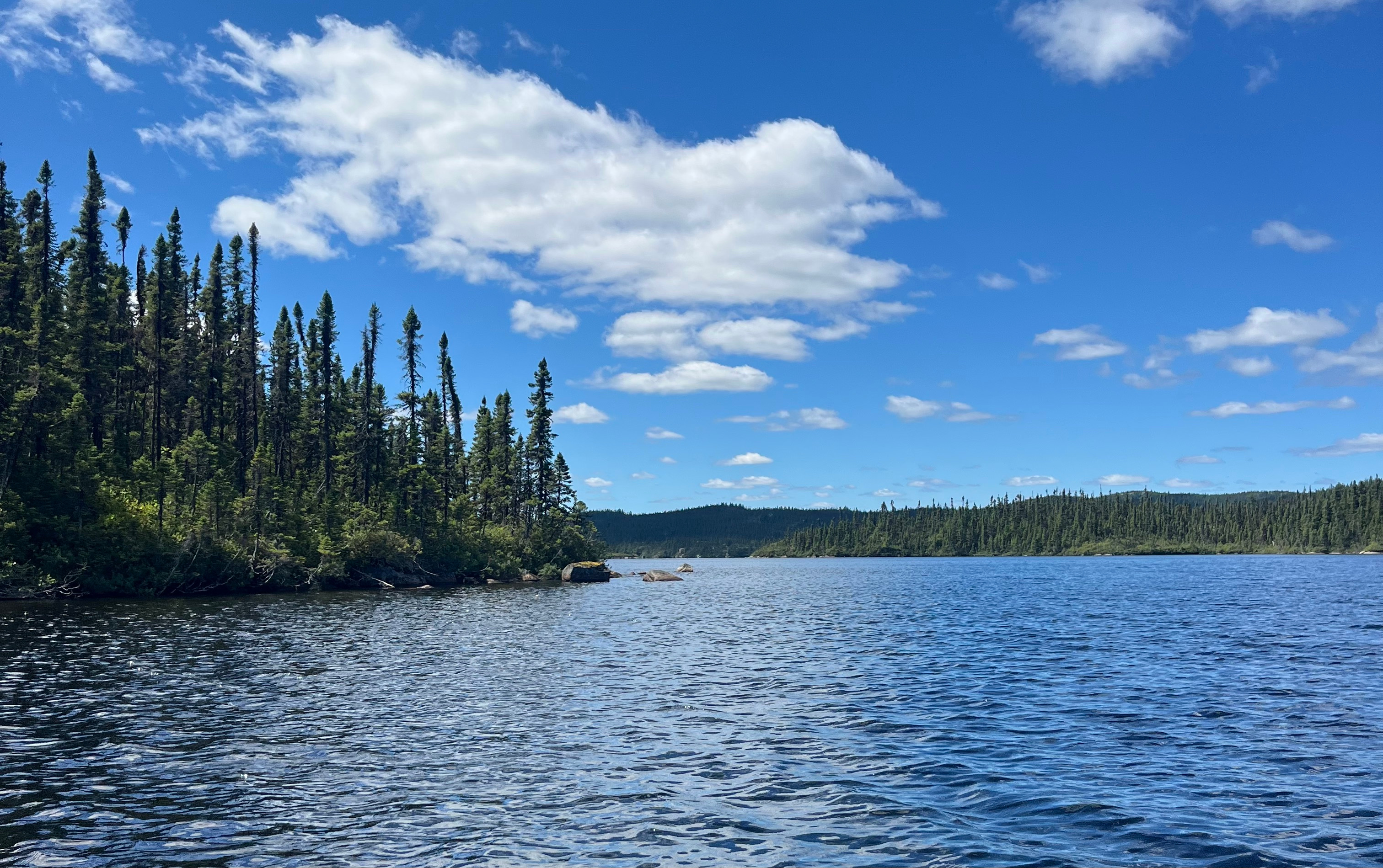
We also visited other sites, including a hydroelectric dam and a forest site. Hydroelectricity is central in Québec, where about 90% of the province’s electricity is generated from hydro. Accordingly, there is a monitoring station at one of the four La Romaine dams in the region. Our work there focused mainly on maintaining the station and collecting data.
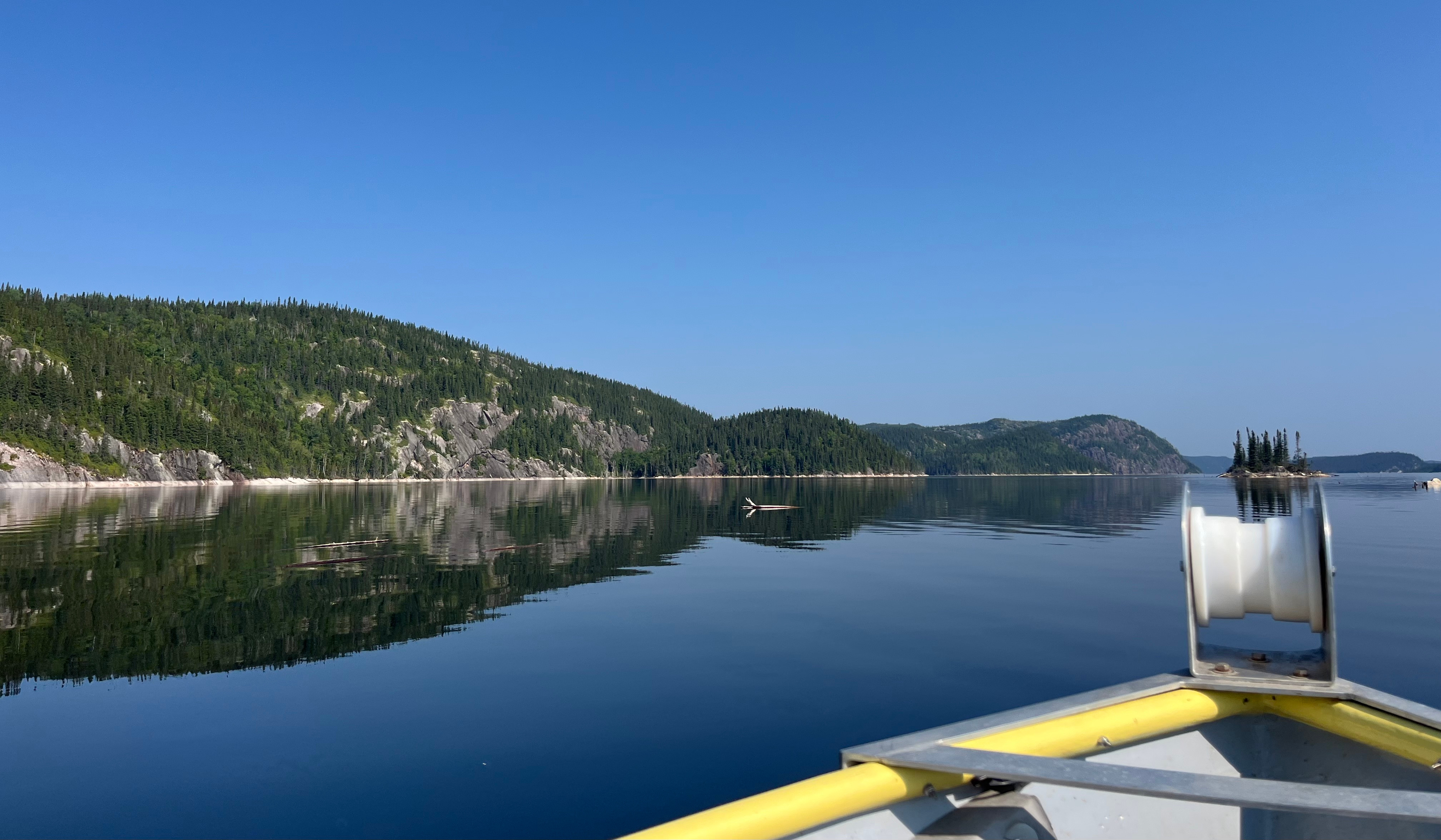
The forest site was beautiful. We installed a new instrument to measure river discharge, but working there was harder because of the heat. On our first day a temperature record was set, the highest ever recorded at that location. It’s no surprise that Donald has noticed changes.
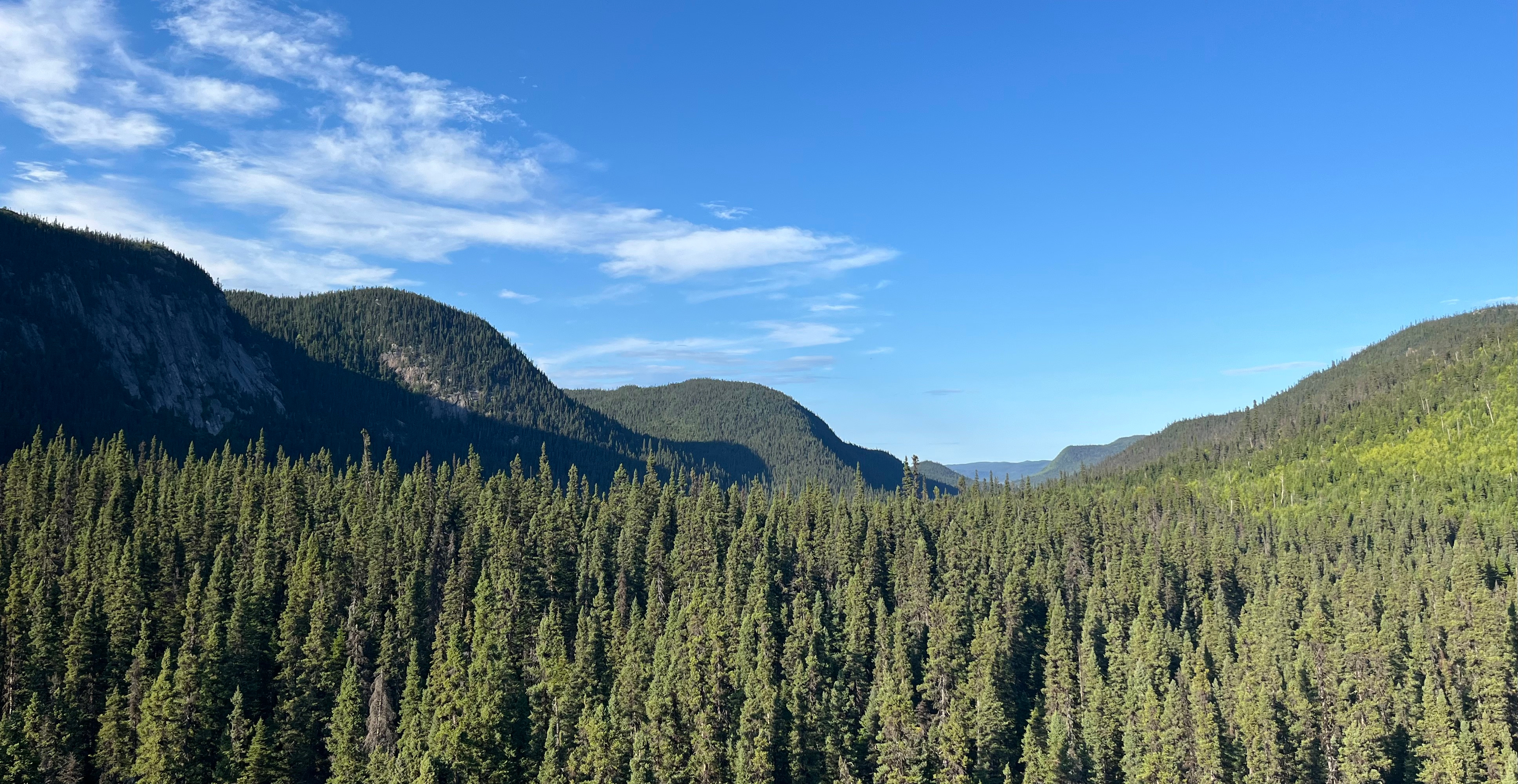
Overall it was an amazing experience and I’ll carry the memories for life. It changed a lot from what I was used to work on, it was sometimes very challenging but I managed to adapt to the situation and I had an incredible team to work with. I’m very grateful to have experienced it. Seeing everything firsthand and hearing from people who directly face these challenges gave me a new perspective on my work, far beyond the data on my computer.
Study work
When I wasn’t in the field, my work was to evaluate the impact of climate change on Lake Bernard across several variables, including evaporation and ice cover. To do this, I used a baseline, status-quo scenario assuming current policies remain essentially unchanged, with no major new mitigation (nothing markedly better or worse than today). Even under this assumption, the projections are significant: by 2100, the duration of ice cover decreases by about 20%, and maximum ice thickness drops by roughly 30%.
Conclusion
In conclusion, these 8 weeks have been an invaluable learning experience where I stepped out of my comfort zone. I developed technical skills but I mostly practiced a wide range of soft skills, such as adaptability, communication, teamwork that I know will serve me throughout my career. I especially appreciated seeing the direct impact of my work, which went far beyond the computer screen and connected to concrete outcomes and communities. By consistently challenging myself, I not only built confidence but also grew on both a personal and professional level.
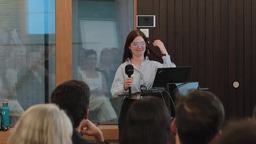
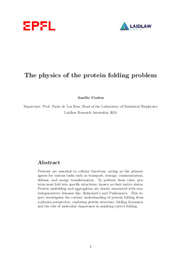
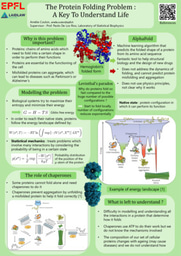
Please sign in
If you are a registered user on Laidlaw Scholars Network, please sign in